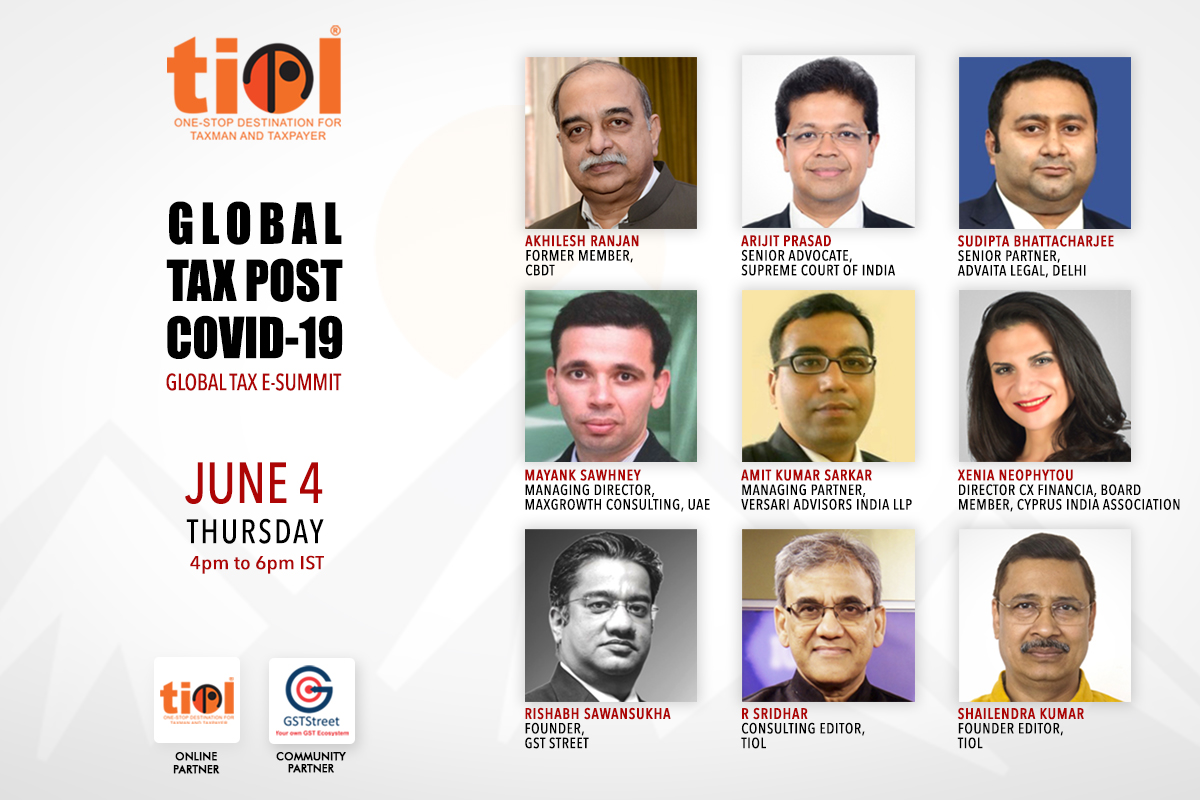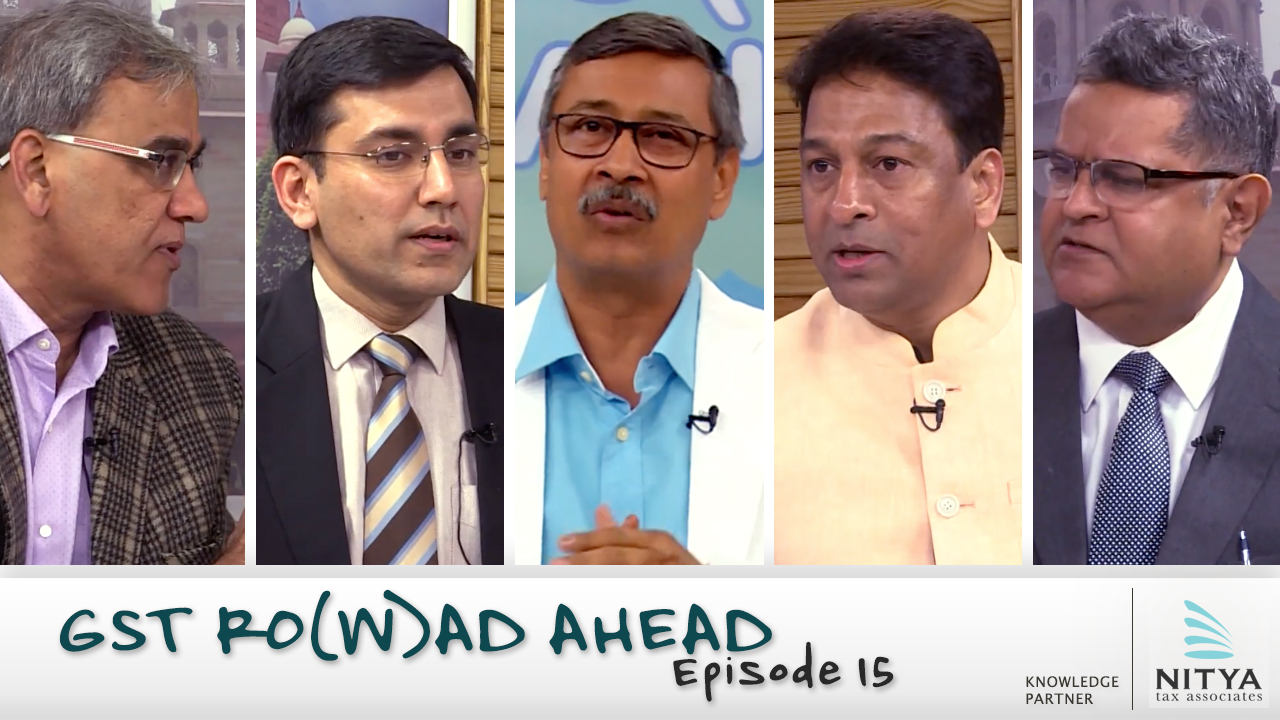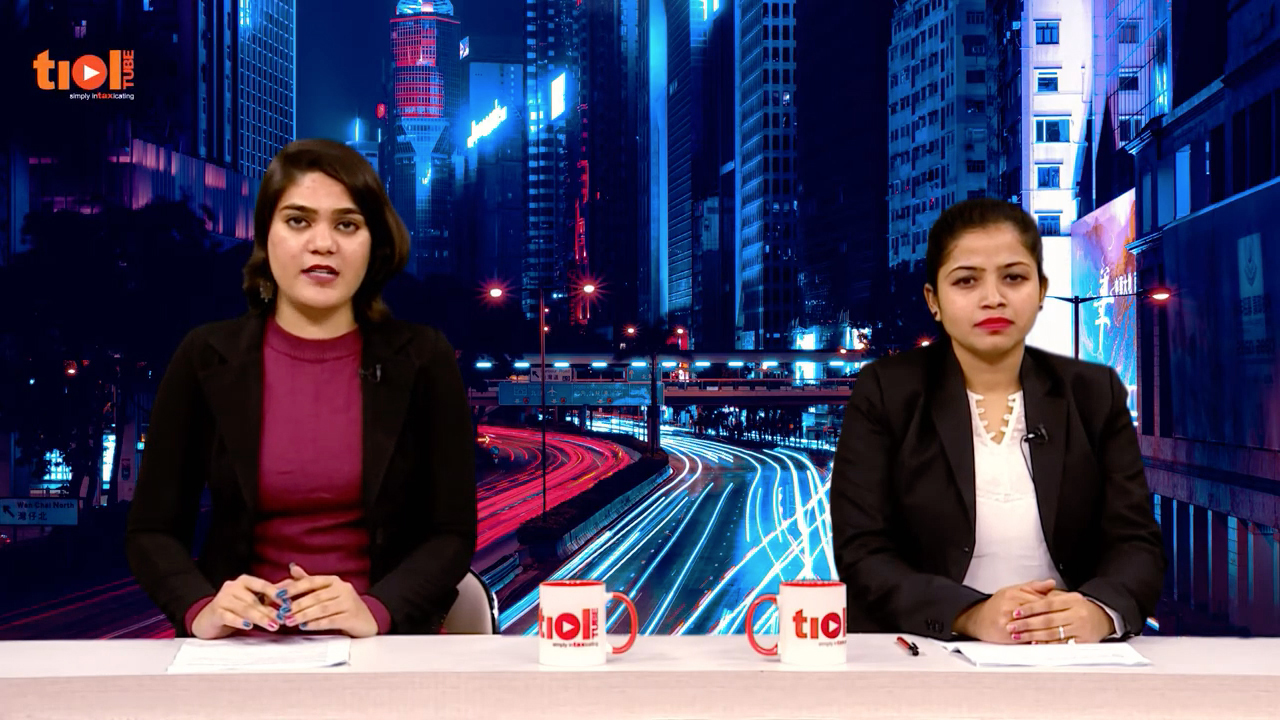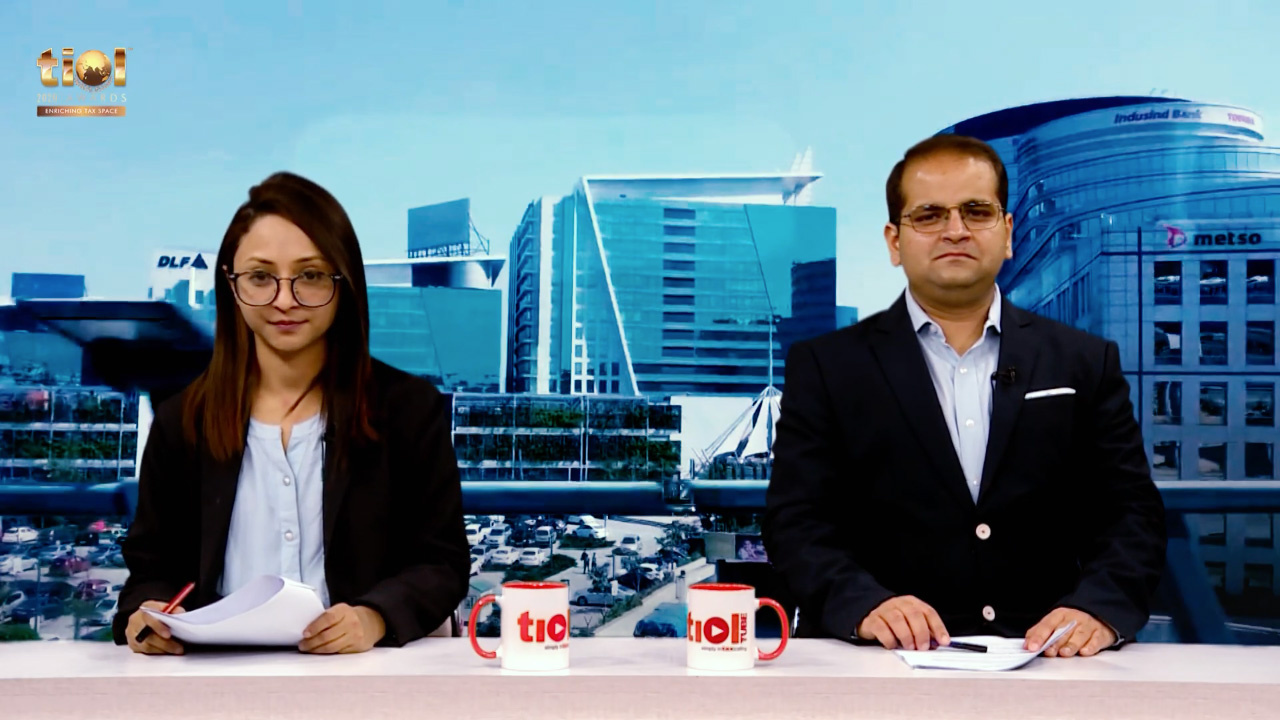|
SERVICE TAX
2020-TIOL-985-HC-GUW-ST
Assam Cricket Association Vs UoI
ST - For the period 2009-2014, certain conclusion was arrived at against the petitioner that the required amount of service tax was not paid by them - By the order dated 04.09.2017 of the Commissioner GST and Central Excise, Guwahati, a penalty of Rs.11,48,82,644.00 was imposed on the petitioner under s.78 of FA, 1994 - an appeal was preferred before CESTAT and the mandatory pre-deposit of 7.5% was paid by the petitioner - Later the petitioner opted for the SVLDRS, 2019 - One of the columns in the Form SVLDRS-1 pertains to whether any penalty was earlier imposed on the claimant concerned - However, while submitting the Form SVLDRS-1 in the column provided for mentioning whether any penalty imposed upon them, the petitioner stated the penalty to be zero, whereas on the other hand as already noted a penalty of Rs.11,48,82,644.00 was imposed on the petitioner - Because of such mistake in the entry made in the form submitted by the petitioner, the respondent authorities had rejected the claim of the petitioner under Scheme 2019, on the ground that incorrect declaration was made - Petition filed against such rejection.
Held: Mistake made by the petitioner by not stating about the penalty imposed upon them in Form SVLDRS-1 cannot be said to be a mistake by which the petitioner claimed an undue benefit which they otherwise are not entitled under the law - Apparently, a mistake made can be of two different types, one being a mistake based upon which a legal right is claimed so that the mistake made can be construed to be an act of misleading the authorities to claim a benefit which otherwise a party is not entitled or the mistake made was more of inadvertent nature, which can also be terms as a callous mistake, which does not put the party making such mistake on an undue advantageous position so as to make them entitled to a benefit which they are otherwise not - A mistake that was deliberately made to claim an undue benefit which the party was otherwise not entitled, would definitely have to be construed to be an incurable mistake but at the same time an inadvertent mistake which may also creep in due to an oversight or because of a callous attitude of the person making the claim but the ultimate result of such mistake would not accrue a benefit which he otherwise would not have been entitled can be accepted to be a curable mistake - There is no provision in the SVLDRS which provides that a person upon whom a penalty is imposed would not be entitled to the benefit given under the scheme - In the aforesaid circumstance, it is an agreed position of the parties that the petitioner may make an application to the appropriate respondent authority to consider the claim of benefit under the Sabka Vishwas (Legacy Dispute Resolution) Scheme, 2019 by allowing the petitioner to make necessary correction in the information provided as regards the earlier penalty imposed on them - It is further agreed that upon such application being made, the authorities would pass an appropriate order thereof as per their discretion within a period of two months - Petition disposed of: High Court [para 7 to 10]
- Petition disposed of: GAUHATI HIGH COURT
2020-TIOL-807-CESTAT-DEL
Shivani Textiles Ltd Vs CCT
ST - It is a case of clerical error in filing the declaration by the assessee - As per the gross taxable receipts, the gross tax payable including cess, was calculated at Rs. 27,05,933/- - However, erroneously the assessee failed to adjust or reduce the gross amount of tax payable with the amount of tax already paid - Evidently, against the amount payable under the VCES Scheme Rs. 27,05,933/- assessee have deposited Rs. 27,32,038/- - The benefit of VCES 2013, have been denied by revenue, only for the simple clerical error in filling form VCES-1 - The assessee have admittedly deposited the declared amount of tax dues and they cannot be asked to deposit more tax, which will be against the provisions of service tax law, as well as Article 265 of the Constitution of India - Accordingly, assessee is entitled to the benefit of VCES 2013: CESTAT
- Appeal allowed: DELHI CESTAT
2020-TIOL-806-CESTAT-DEL
Vimla Infrastructure India Pvt Ltd Vs CCE, C & ST
ST - Two issues arise for consideration in the appeals - The first is with regard to the demand of service tax on deposits made in favour of appellant by the members of consortium - The second is with regard to the demand of service tax on difference in the rate charged by appellant from the members of consortium and non-members for providing 'Cargo Handling Services', since the case of the Department is that a lesser rate has been charged from the members of consortium - The appellant is engaged in rendering 'Cargo Handling Services' - In order to establish a private siding to serve the customers, the appellant claims to have collected interest free refundable amount from the members of consortium - For this purpose, appellant entered into an agreement with Railways to construct a siding at Silyari as per the terms and conditions set forth in the agreement - In terms of aforesaid agreement, the siding cannot be utilised by any person without the prior written permission of Railway Administration - Applications were, therefore, submitted to the Railway Administration for approving the members of consortium as co-users of siding and approval was granted by the Railways - An agreement was also entered into between the Railways and members of the consortium containing terms and conditions - A perusal of the aforesaid agreement would clearly indicate that Bhagwati Power would be responsible for the payment of freight, demurrage, siding and other charges for the traffic dealt with in the Vimla Logistic Park Siding - The appellant also executed Indemnity Bonds in favour of Railways in relation to the co-users - Bhagwati Power also affirmed that the Indemnity Bond shall remain valid and subsisting even after the completion of the transaction by the co-user and that the Railway Administration would be entitled to seek its enforcement at any time in case of any eventuality enumerated in the Bond during the period of transaction - Thus, if a co-user was to make any default in payment to the Railway Administration in regard to tollage liabilities such as freight, demurrage charges, siding charges and other charges accruing due to use of railway siding by the co-user, the same would be indemnified by the appellant in terms of the Indemnity Bond - According to the appellant, this amount has been deposited as a refundable interest free security - According to the Department, this amount has been deposited as an advance for making payment of freight, demurrage and other charges to the Railways and therefore would be a taxable service - It is clear that the amount deposited by co-users of siding was an amount to be utilised for construction of siding or to make payment to the Railways, if the co-user defaulted, in terms of the Indemnity Bond - The liability to pay charges to the Railways was of the co-user and the appellant only indemnifies if there is any default by making payment from the amount deposited by the co-users and in such a situation the amount of deposit will get reduced by that much amount which the appellant has paid - The amount is not utilised for the amount of consideration to be paid by the co-user and indeed no document has been produced by the Department to show that this amount has been utilised for the said purpose - The balance sheet also shows the amount as 'current liability' in the books of accounts of appellant - It is, therefore, clear that a security deposit for any length of time would not automatically became a sale proceed in the hands of company and that there is no provision in service tax law for taxing notional interest on a security deposit - Such being the position, the Commissioner was not justified in holding that the amount deposited by members of the consortium with the Appellant had escaped assessment of service tax, and therefore, the Appellant should include the amount deposited by the consortium members in the gross amount for payment of service tax.
The second issue that was examined by Commissioner is as to whether the appellant had charged lower rates for Cargo Handling from consortium members who had contributed to the deposits as compared to the rates charged from the non members of the consortium - The Commissioner found from a scrutiny of the invoices raised by appellant that they had rendered 'Cargo Handling Service' to independent customers at a higher rate than to the consortium members and therefore, the actual price charged from the consortium members did not reflect the true consideration for Cargo Handling Service - The Commissioner, therefore, held that the price of Rs. 91 per metric ton charged from the non-consortium members should reflect the actual consideration in terms of Rule 3 and 4 of the 2006 Rules - This finding of the Commissioner is perverse, for even the comparison that has been drawn from the table does not reflect this position - The appellant has in some cases charged lesser rate from the non-consortium members as against that charged from consortium members - The Commissioner has even mentioned that there was no agreement between the appellant and the independent members, which fact is apparently incorrect - Rules 3 and 4 of the 2006 Rules could also not have been invoked as they apply only when consideration is wholly or partly not in terms of money - This would be clear from a bare perusal of Rule 3 which is in regard to a case where value of consideration is not wholly or partly consisting of money or when such value is not ascertainable - The Commissioner was, therefore, not justified in holding that the appellant had suppressed the taxable valued in the ST-3 returns - Thus, the confirmation of demands under the impugned orders cannot be sustained - Such being the position, the imposition of penalty and interest is also not justified: CESTAT
- Appeals allowed: DELHI CESTAT
CENTRAL EXCISE
2020-TIOL-805-CESTAT-DEL
Suresh Jangid Vs Commissioner, CGST & CE
CX - In remand proceedings, lower authorities have imposed penalties to the extent of 100% of total demand confirmed against them, hence appeal.
Held: Tribunal had observed that while deciding the issue in de novo proceedings, penalties as per statute are required to be imposed - If the provisions of the statute required imposition of less penalty, where the duty and part of penalty has already been deposited, the same were required to be followed by the lower authorities - As such, the impugned order is set aside and the matter is remanded to the original adjudicating authority to fix the penal liability in terms of provisions of Section 11AC: CESTAT [para 3]
- Matter remanded: DELHI CESTAT
2020-TIOL-804-CESTAT-AHM
CCE Vs Genus Electrotech Ltd
CX - The revenue is in appeal against OIO wherein the adjudicating authority has dropped the proceedings of SCN dated 01.04.2010 and 27.07.2010, wherein it was proposed to recover the refund granted under notfn 39/2001-CE in respect of final product on the ground that the production of these products were not started on declared dated 14.01.2005, it was also alleged in SCN that the plant and machinery certified by committee does not include the plant & machineries subsequently installed and used for the manufacture of subject goods - The finding of Commissioner with reference to the Board Circular dated 10.07.2008 to the extent that even if the production is started after the date i.e. 14.01.2005, but if the Plant and Machinery were installed as on 31.12.2005, the benefit of the notfn 39/2001-CE is prima facie available appears to be prima facie correct - However, the adjudicating authority decided the entire matter relying on Tribunal's remand order dated 27.10.2015 and AC's denovo O-I-O dated 30.08.2016 - The adjudicating authority has not verified the facts in the context of this case - The vital fact which needs to be verified is that whether the goods on which exemption was claimed were manufactured from the plant & machinery installed prior to the commencement of production thereof i.e. 14.01.2005 or they were installed after 14.01.2005 - Therefore, matter needs to be re-examined and a fresh order to be passed by the adjudicating authority : CESTAT
- Matter remanded: AHMEDABAD CESTAT
CUSTOMS
2020-TIOL-980-HC-MAD-CUS
Gravity Ventures Vs ACC
Cus - The petitioner imported goods described as non-woven interlining chemical bond/doubt dot/embroidery paper and BoE was filed for it - The petitioner classified the items under CTH 5603 9100, covering non wovens, while non-woven interlining embroidery paper was classified under CTH 5603 9200 - The petitioner claimed benefit under Customs Exemption Notfn No 46/2011 - Thereafter, the Department informed the petitioner that the investigation report in respect of the BoE filed by the petitioner, had been forwarded to the respondent-authority herein - The petitioner was directed to make all correspondence with such authority - Later, the petitioner requested for assessment of the goods, but the respondent did not make such assessment so far - The petitioner also sought that directions be issued to the respondent authority to issue detention certificae recommending waiver of demurrage and detention charges as per Regulation 6(1)(i) of the Handling of Cargo in Customs Areas Regulations 2009 - As both requests were not considered, the present writ petitions were filed.
Held - The present petitions can be disposed off without expressing any opinion on merits - Hence the respondent authority is directed to consider the petitioner's request for provisional assessment and pass such order within three weeks' time from date of receipt of this order - The respondent is also directed to consider the petitioner's request for issuing detention certificate and pass orders on such request within a period of three weeks from the date of receipt of a copy of this order - The petitioner too is directed to produce the requisite documents when called for: HC
- Writ petitions disposed of: MADRAS HIGH COURT
|
|












